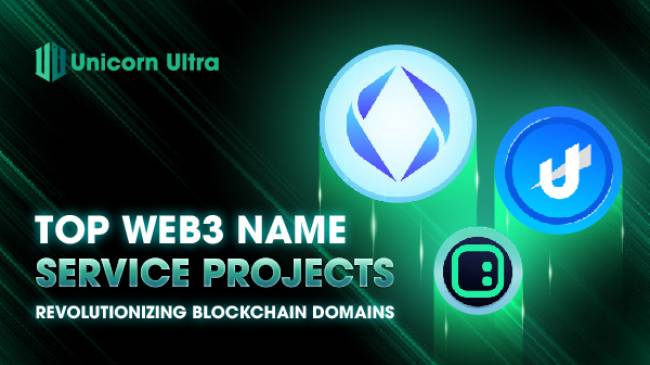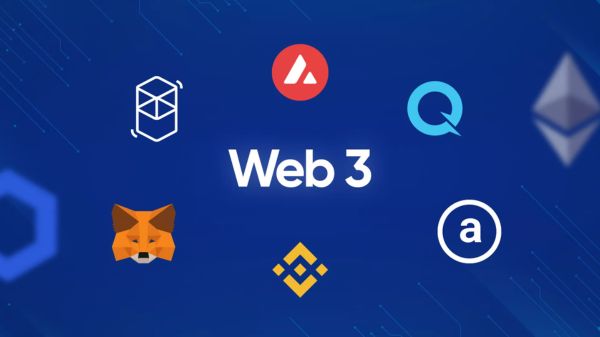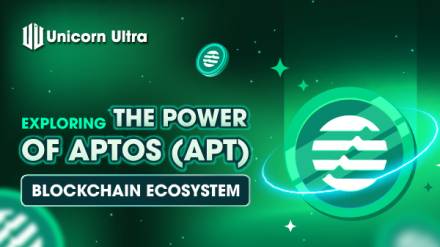Blockchain technology has paved the way for innovative solutions in various sectors, and one such area of development is blockchain domain name services. These services utilize the decentralized and secure nature of blockchain to revolutionize traditional domain names. In this blog post, we will delve into the top Web3 Name Service projects, highlighting their purpose, selection criteria, and pros and cons.
Table of Contents
Top Web3 Name Service projects

Ethereum Name Service (ENS)
ENS is one of the most popular Web3 Name Service projects built on the Ethereum blockchain. It allows users to register and manage decentralized domain names ending in ".eth." ENS offers a simple and elegant solution for individuals and businesses looking to establish their presence in the decentralized web.
Unstoppable Domains
Unstoppable Domains aims to simplify blockchain domain ownership. It provides users with a decentralized domain registry, allowing them to create and manage domains ending in popular extensions such as ".crypto" and ".zil." Unstoppable Domains also integrates with various blockchain wallets and offers additional features like decentralized websites and email services.
Space ID
Space ID is a decentralized identity system that enables users to register and manage blockchain-based domain names. It operates on the Cosmos blockchain and offers seamless interoperability with other blockchain networks. Space ID emphasizes user privacy and data ownership.
.bit (dotbit)
.bit, also known as dotbit, is a Web3 Name Service project that leverages the Namecoin blockchain. It provides decentralized domain name registration and resolution, utilizing a peer-to-peer network. While .bit offers greater ownership and censorship resistance, it may require additional technical expertise to set up.
Lens Protocol
Lens Protocol aims to bridge the gap between Web2 and Web3 by enabling users to create and manage blockchain domain names effortlessly. Built on the Binance Smart Chain, Lens Protocol offers various features such as decentralized websites and email services.
CyberConnect
CyberConnect is an open-source project focused on building decentralized identity and reputation systems. It enables users to create and manage blockchain domain names, promoting user control and data privacy.
Pros and Cons of Web3 Name Service projects

Pros
- Enhanced ownership and control over domain names
- Resistance to censorship and seizure
- Simplified domain registration and management processes
- Integration with various blockchain wallets and services
- Potential for increased interoperability and seamless cross-chain functionality
Cons
- Learning curve for users new to blockchain technology
- Potential for high renewal fees
- Limited mainstream adoption and awareness
- Technical complexities for some projects
- Reliance on blockchain network scalability for optimal performance
How to use Web3 Name Service to access resources on Web3
To use the Web3 Name Service (WNS) to access resources on Web3, you can follow these general steps:
1. Set up a Web3 wallet: To interact with Web3 services and use WNS, you'll need a Web3-enabled wallet. Popular options include MetaMask, Trust Wallet, and Coinbase Wallet. Install a compatible wallet extension or app and create an account.
2. Connect your wallet to Web3-enabled platforms: Access platforms or dApps that support Web3 integration and connect your wallet. This is typically done by clicking on the wallet extension or app and authorizing the connection.
3. Register a domain name on WNS: Once your wallet is connected, you can register a domain name on the Web3 Name Service. Choose a unique and desired domain name and follow the registration process specified by the WNS provider. This usually involves submitting a transaction through your connected wallet.
4. Manage your domain: After registering a domain, you can manage it through your wallet or dedicated WNS management interfaces. This includes configuring records and associating resources, such as blockchain addresses, decentralized websites, IPFS content, or other Web3 resources, with your domain.
5. Resolve and access resources: Once your domain is registered and configured, you can use it to access resources on Web3. Instead of using complex blockchain addresses or URLs, you can simply use your registered domain name. For example, you can use your WNS domain to receive crypto payments or access decentralized websites associated with your domain.
6. Update and transfer ownership: You have the flexibility to update the resources associated with your domain by modifying the records or transferring ownership to another address. This allows you to adapt and manage your domain as your needs change over time.
It's important to note that specific steps and interfaces may vary depending on the WNS provider or platform you choose. Some platforms may have their own unique registration processes or management interfaces. Be sure to consult the documentation or guidelines provided by the specific WNS provider you are using for detailed instructions.
By leveraging the Web3 Name Service, you can simplify access to resources on Web3 by using human-readable domain names instead of complex cryptographic addresses.

What is Web3 Name Service project selection criteria?
When evaluating Web3 Name Service projects, several criteria come into play. These criteria help users determine which platform aligns best with their requirements. Here are some key factors to consider:
Security: The chosen project should prioritize security measures, including encryption, multi-signature capabilities, and robust smart contract implementations.
Usability: The platform should offer a user-friendly interface that simplifies the domain registration and management process. Intuitive dashboards and clear instructions are essential for seamless user experiences.
Interoperability: Compatibility with various blockchain networks and wallets ensures broader accessibility and convenience for users.
Community and Adoption: A vibrant and engaged community is indicative of a project's success. Higher adoption rates and endorsements from well-known individuals or organizations can also boost confidence in a Web3 Name Service project.
The Future of Web3 Name Service
The future of Web3 Name Service (WNS) holds several potential developments and opportunities. Here are some aspects that may shape the future of WNS:
- Enhanced interoperability: As the Web3 ecosystem continues to evolve, there is a growing need for interoperability between different blockchain networks and platforms. The future of WNS may involve expanding its capabilities to support domain names and resource resolution across multiple blockchains, enabling seamless access to resources on various Web3 networks.
- Integration with emerging technologies: WNS may integrate with emerging technologies to unlock new possibilities. For example, integration with decentralized storage systems like IPFS (InterPlanetary File System) can facilitate the association of decentralized websites or content with WNS domain names, providing a more decentralized and censorship-resistant web experience.
- Integration with decentralized identity solutions: Web3 is exploring decentralized identity solutions, where individuals have control over their identity and personal data. WNS could play a role in supporting decentralized identity systems, enabling users to associate their identity information with their WNS domain names, thus simplifying the management and sharing of personal information in a more secure and user-centric manner.
- Governance and decentralization: The future of WNS may involve further decentralization and community governance models. Decentralized decision-making processes, such as token-based governance or decentralized autonomous organizations (DAOs), could be implemented to involve the community in the management and evolution of WNS.
- Integration with Web2 and mainstream adoption: To achieve broader adoption, WNS may explore integration with traditional Web2 technologies and services. This could involve partnerships with existing domain registrars, DNS providers, or web service providers to bridge the gap between Web2 and Web3, making it easier for mainstream users to transition into the decentralized web.
- Standards and compatibility: As the Web3 ecosystem expands, establishing standards and compatibility frameworks for WNS can foster interoperability and seamless integration with various applications and platforms. Collaborative efforts among developers, projects, and industry stakeholders can drive the development of common protocols and standards for WNS.
It's important to note that the future of WNS will be influenced by technological advancements, regulatory considerations, community adoption, and the overall growth of the Web3 ecosystem. As the landscape continues to evolve, WNS has the potential to play a crucial role in simplifying user experiences and facilitating the decentralized web of the future.
Conclusion
The top Web3 Name Service projects are at the forefront of revolutionizing domain name services through blockchain technology. By offering enhanced ownership, security, and decentralized solutions, these projects empower users in the digital landscape. Whether you choose Ethereum Name Service, Unstoppable Domains, Space ID, .bit (dotbit), Lens Protocol, or CyberConnect, each platform brings its unique features and advantages to the table. As the blockchain ecosystem continues to evolve, Web3 Name Service projects play a crucial role in shaping the future of online identity and interaction. Follow U2U for more blockchain updates.






